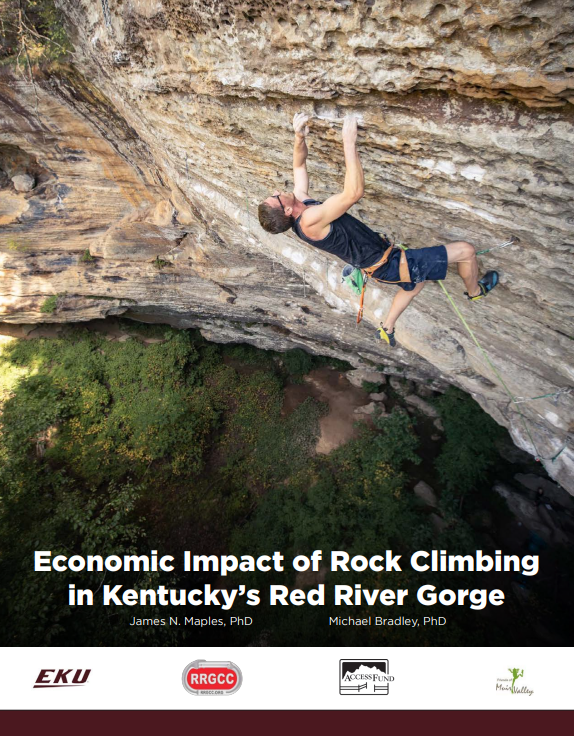This article is part of a series by Eastern Kentucky University graduate students and their professor, Michael Bradley, as they study recreation and its impact on economic development.
Understanding how recreation impacts the economy is key to promoting growth and boosting community well-being. When we talk about recreation, we refer to activities people do for fun, relaxation, and personal growth—things like sports, outdoor adventures, arts, fitness, and wellness. Whether it’s going for a hike, playing a game of soccer, or taking a yoga class, there’s something for everyone. These activities not only provide enjoyment but also help people stay healthy and creative. However, the opportunities for recreation can vary depending on things like the local economy, geography, and job prospects.
Economic development plays a huge role in shaping the types of recreational activities available and how many people can participate. Many recreational activities, like rock climbing, can require a fair amount of spending, which in turn has an impact on both individuals and the local economy. For instance, people who go climbing in places like the Red River Gorge will spend money on things like travel, lodging, food, and gear. Bradley and Maples (2021) found that climbers choosing to stay in hotels spend an average of $124 per visit on their trip, while those camping spend an average of $16 on their trip. Climbers using rental cabins typically spend around $190 during their trip. These numbers exclude when climbers who spend zero dollars due to other individuals paying for their trip. Travel and food are big parts of the overall cost of these activities. By budgeting carefully, recreational visitors can make the most of their trip while also helping local businesses and boosting the community’s economy.
Where people live also plays a big role in the kinds of recreational options available to them. In places like Central Appalachia, for example, the economy has traditionally been shaped by mono-economic industries like coal mining and timber, which have often led to economic dependency and high poverty rates (Bradley & Maples, 2021). Over the years, the focus on extraction industries has created an uneven distribution of wealth, and the environmental toll has left lasting effects on local communities, think pollution and land erosion. These issues have made it harder for many residents to access diverse economic opportunities, including recreation.
That’s where the idea of sustainable job opportunities comes into play. By focusing on the natural resources already present in an area, communities can create new, environmentally friendly jobs that support both the economy and the local environment. Central Appalachia, for example, is home to beautiful mountainous terrain that’s perfect for outdoor recreation—activities like hiking, rock climbing, camping, and mountain biking. These activities don’t just let people enjoy the beauty of the region, they also provide opportunities for local revenue and a healthier, more active community.
Maples (2021) suggests that focusing on outdoor recreation can help diversify local economies rather than relying on just one industry. Expanding recreational activities can create new jobs, encourage environmental conservation, and stimulate economic growth. Plus, adding more outdoor activities helps preserve the natural environment, support biodiversity, and reduce waste, which benefit both the economy and the ecosystem.
So, what does this all mean? When communities understand how recreation can boost the economy, they can promote sustainable growth and improve overall well-being. In places like Central Appalachia, where mono-economic industries have caused economic struggles, introducing outdoor recreation opportunities can have a major impact. Not only can these activities create jobs, but they can also boost the local economy through tourism, improve public health, and encourage community engagement.
By tapping into the natural resources already available, places like Central Appalachia have the potential to unlock new opportunities for both recreation and economic growth. Whether it’s hiking, rock climbing, camping, or mountain biking, outdoor activities offer a way to drive economic growth, create jobs, and improve the quality of life for everyone in the community. It’s a win-win that can help communities become more resilient for the future.
References
Maples, J., & Bradley, M. (2021). Outdoor Recreation and rural transitions in Central Appalachia: Revisiting the economic impact of rock climbing in Kentucky’s Red River Gorge. Journal of Economic Impact, 3(3), 186–195. https://doi.org/10.52223/jei3032108






